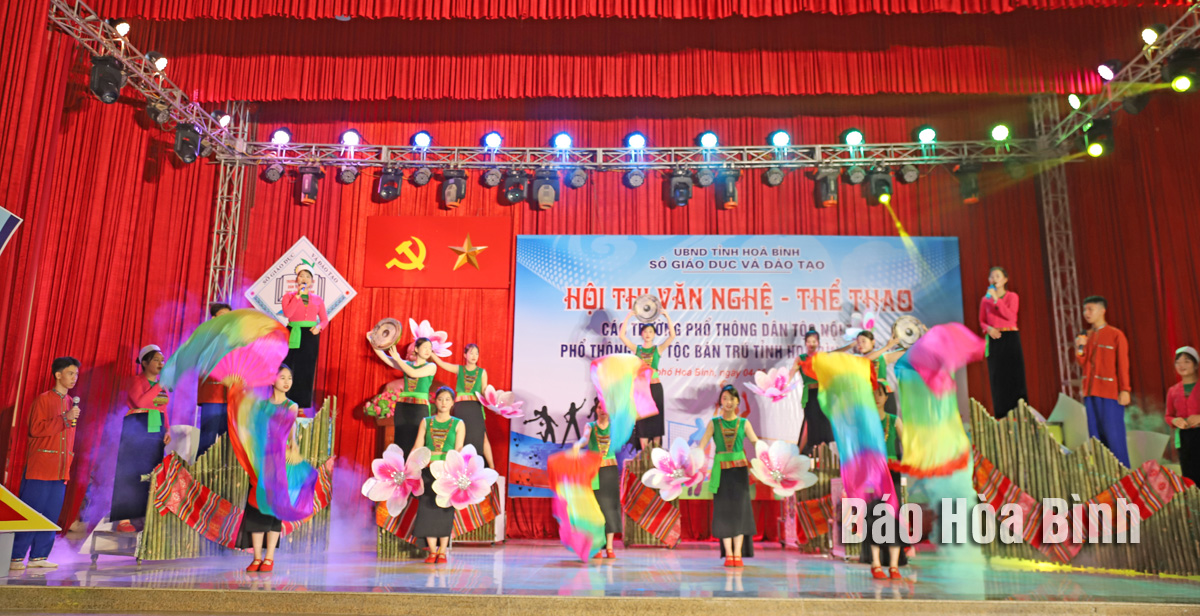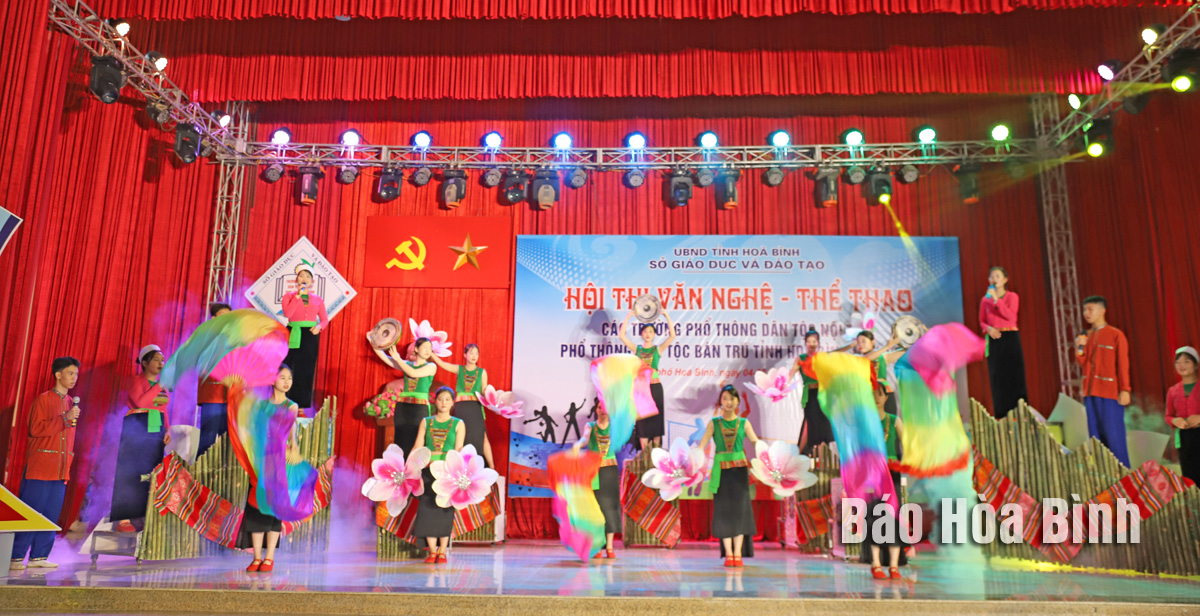
On October 4, at the Provincial High School for Ethnic Minorities, the Department of Education and Training held the opening ceremony for the 2024 Cultural and Sports Festival for Ethnic Boarding and Semi-boarding Schools in Hoa Binh Province.

The artistic performance
section at the Cultural and Sports Festival for Ethnic Boarding and
Semi-Boarding Schools in Hoa Binh Province in 2024.
The festival, held from
October 4 to 6, brought together over 850 students from 24 schools, including
11 ethnic boarding secondary and high schools, 11 semi-boarding schools, 1
ethnic boarding secondary school, and 1 ethnic boarding high school.
During the event, the
students competed in two main categories: cultural performances and sports. The
cultural competition featured singing, dancing, gong performances, and
traditional musical instrument displays with the themes focusing on love for
the homeland, and the country, praising the Party, Uncle Ho, and the schools.
The sports competition included three events: stick pushing, tug of war, and
volleyball.
The festival aimed to
enhance the political and ideological education, morality, lifestyle,
aesthetics, and physical health among students of ethnic boarding and
semi-boarding schools in the province. It also fostered a joyful atmosphere,
promoted exchanges and experience-sharing among the schools, and selected
outstanding performances and athletes to represent the province in the national
competition organized by the Ministry of Education and Training.
With an increasingly vibrant and widespread emulation movement aimed at building cultured residential areas and cultured families, Yen Thuy District has been making steady progress toward improving both the material and spiritual well-being of its people, while fostering a civilized, prosperous, beautiful, and progressive community.
Once lacking recreational spaces and community facilities, Residential Group 2 in Quynh Lam Ward (Hoa Binh City) has recently received attention for the construction of a new, spacious, and fully equipped cultural house. The project followed the model of state support combined with public contributions in both labor and funding.
The "All people unite to build cultural life" movement, which has been effectively integrated with Kim Boi district’s socio-economic development goals, is fostering a lively spirit of emulation across local residential areas, hamlets, villages, public agencies, and enterprises. In addition, through the initiative, traditional cultural values are being preserved and promoted, while community solidarity and mutual support in poverty reduction and economic development are being strengthened.
A working delegation of the Hoa Binh provincial People’s Committee led by its Permanent Vice Chairman Nguyen Van Toan on June 11 inspected the progress of a project to build the Mo Muong Cultural Heritage Conservation Space linked to tourism services in Hop Phong commune, Cao Phong district.
Born and growing in the heroic land of Muong Dong, Dinh Thi Kieu Dung, a resident in Bo town of Kim Boi district, in her childhood was nurtured by the sweet lullabies of her grandmother and mother. These melodies deeply imprinted on her soul, becoming an inseparable part of her love for her ethnic group's culture. For over 20 years, this love for her hometown has driven Dung to research, collect, and pass down the cultural values of the Muong people to future generations.
In the final days of May, the Ethnic Art Troupe of Hoa Binh Province organized performances to serve the people in remote, mountainous, and particularly disadvantaged areas within the province. These were not just ordinary artistic shows, but they were the meaningful journeys aimed at spreading cultural values, enhancing the spiritual life of the people and contributing to the preservation of ethnic minority cultural identities.



